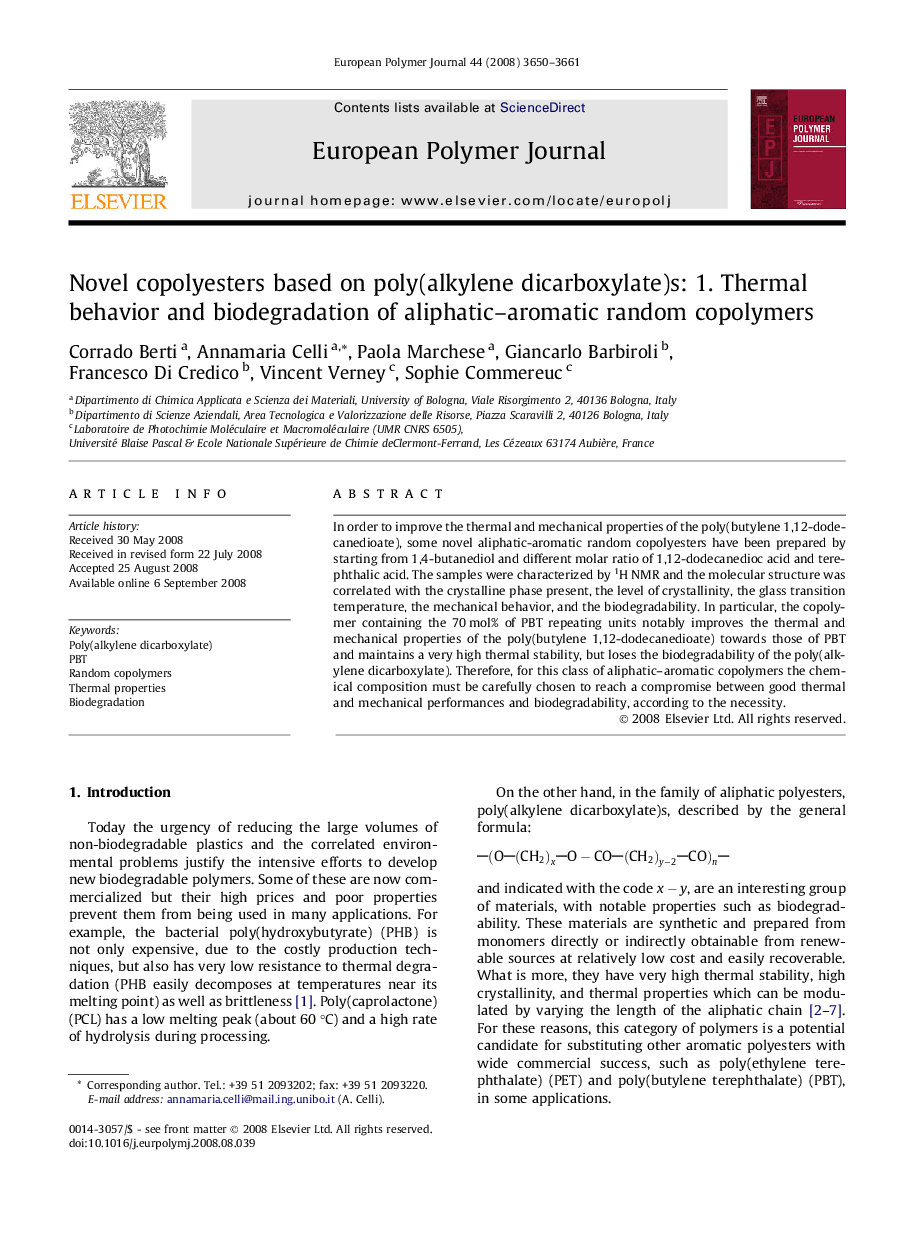| Article ID | Journal | Published Year | Pages | File Type |
|---|---|---|---|---|
| 1400876 | European Polymer Journal | 2008 | 12 Pages |
Abstract
In order to improve the thermal and mechanical properties of the poly(butylene 1,12-dodecanedioate), some novel aliphatic-aromatic random copolyesters have been prepared by starting from 1,4-butanediol and different molar ratio of 1,12-dodecanedioc acid and terephthalic acid. The samples were characterized by 1H NMR and the molecular structure was correlated with the crystalline phase present, the level of crystallinity, the glass transition temperature, the mechanical behavior, and the biodegradability. In particular, the copolymer containing the 70Â mol% of PBT repeating units notably improves the thermal and mechanical properties of the poly(butylene 1,12-dodecanedioate) towards those of PBT and maintains a very high thermal stability, but loses the biodegradability of the poly(alkylene dicarboxylate). Therefore, for this class of aliphatic-aromatic copolymers the chemical composition must be carefully chosen to reach a compromise between good thermal and mechanical performances and biodegradability, according to the necessity.
Related Topics
Physical Sciences and Engineering
Chemistry
Organic Chemistry
Authors
Corrado Berti, Annamaria Celli, Paola Marchese, Giancarlo Barbiroli, Francesco Di Credico, Vincent Verney, Sophie Commereuc,
